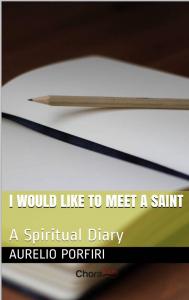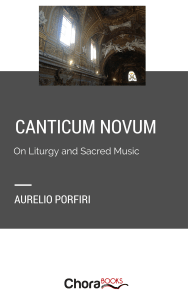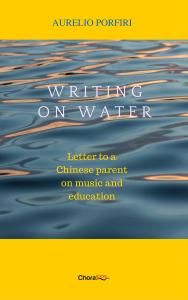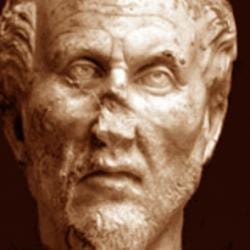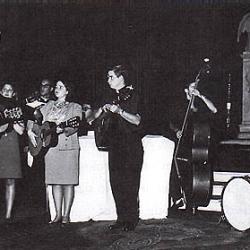 There is no doubt that there is something wrong with education in the way we use this term today. First of all, “education” is used as synonym of “schooling” but, as a matter of fact, they are not the same thing.
There is no doubt that there is something wrong with education in the way we use this term today. First of all, “education” is used as synonym of “schooling” but, as a matter of fact, they are not the same thing.
Education means learning, schooling are those organizations (schools, universities, etc.) that organize learning. But is this “organized learning” always effective? No, not always. Indeed we can observe easily that sometimes some societies may even distort the original purpose and joy of learning. Sometimes learning becomes an excuse to get some kind of qualification for a job with a better salary.
People often exchange qualification with knowledge, when we all know that qualifications are a bureaucratic requirement, knowledge is something that comes even without any qualification.
Many books have been written on the topic of education in Asia. Some of them were critical of the educational culture that dominates the continent. Can we use education only to foster the spirit of competition and ambition in the students? Can a test tell us what a person is? Many scholars are indeed rethinking education and its connection with schooling, such that it is not meant to “train racehorses” but people who can make good decisions and lead a meaningful life.
Among the scholars and thinkers who have spoken about education is Sir Ken Robinson. In a recent interview with Rod Berger (“Sir Ken Robinson: Finding Market Pressures To Innovate Education,” Forbes, June 23 2017) he said: “I [also] have people saying to me that when they’ve seen the talks I’ve done or they’ve read the things I’ve written, it helps them to feel they’re not alone in what they’re trying to get done in education. There are many wonderful people out there who feel that they’re operating in a political headwind. That’s been true for the past 15 to 20 years where the culture of testing and standardization has made life very difficult for people in schools, and it’s done very little to improve what’s been going on in schools. People feel that hearing other people say these things on a public platform gives them permission to make changes. I think that’s very important because I’m convinced there is a need for profound change in education. I never say that in criticism of teachers or of school principals or even of superintendents. That’s something in the culture ─ at least, the political culture ─ of education. There is pressure on the system that gets in the way of what people most urgently need to do in schools to make them more humane and more personal places. There’s really a lot more room for innovation in schools than people suspect. A lot of what goes on isn’t required by law; it’s more a function of habit and tradition and routine than anything else.”
James Marcus Bach tackles the purpose of education in his Secrets of a Buccaneer-Scholar. Self-Education & the Pursuit of Passion (2011 Scribner). Mr Bach is the son of bestselling author Richard Bach (Jonathan Livingston Seagull). Being a school dropout at the age of sixteen has not prevented him from being very successful in the field of computer software testing. He is very active also as a teacher of critical thinking and software testing around the world.
Mr Bach can you give us your definition of “education”?
Education is the mind you construct for yourself and your way of constructing it.
What is a “buccaneer-scholar”?
It’s my word for a kind of assertive, iconoclastic thinker. It is anyone whose love of learning is not muzzled, yoked or shackled by any institution or authority; whose mind is driven to wander to find its own voice and place in the world.
You have an independent mind. But lots of kids tend to be passive. Don’t you think that schooling can help them to be in touch with things that otherwise they would never come across?
Everyone has an independent mind. Even people who seem passive. Many people choose to surrender their independence or to pretend they never had it. That’s an understandable choice. Be that as it may, as I write in the book, I don’t deny that school can be useful. Hey, if you want to go to school, then go! What I am critiquing is schoolism — the widespread belief that without going to a “school” one cannot obtain a wonderful education. Yes giving up control can lead you to interesting places that perhaps you would not have ventured to on your own. That’s why I sometimes choose to give up control. I may, for instance, read a book just because it was recommended by a friend. But for me, the idea of floating along for years on some conveyor belt of learning designed by someone else is intolerable.
Why do you have problems learning from “authorities”? You write books and give workshops. So are you not an authority yourself?
I don’t have problems learning from authorities. I have trouble with authoritarians. As a teacher I do not take an authoritarian approach, but rather a constructivist approach. I don’t attempt to force my students to learn anything. I create a certain environment and I arrange certain experiences. Then we discuss them. My students learn as they see fit, and I try to help them. The reason I have trouble with authoritarians is several-fold. One reason seems to be that, for me, self-respect is not optional. I can’t seem to function without it. Authoritarian teaching is a threat to self-respecting students. But the bigger reason was that my mind operates based on rhythms I cannot completely control. In fact, when I try too hard to control them, I become physically ill. The rhythms by which I grow involve a lot of testing and questioning, which is an exploratory and opportunistic process. This tends to spoil the tranquility of many teachers whose classrooms I have tried to occupy.
Don’t you feel that your elements of self-education can be integrated in a regular course of studies?
I don’t know what you mean by regular. Perhaps you mean authoritarian? Didactic? Instructor led? In any case, yes, they could. Of course my point is that they don’t need to be.
There are societies where degrees, marks, tests are almost everything. How can you convince people there with your approach?
I have no need to convince people of anything. I did not write the book to persuade anyone to do anything. I wrote it because I bet some people feel lost and broken in ways that I can help fix. I wrote it as a lifeline to the kind of kid and young adult that I used to be. I solved those problems that plagued me and I want to pass on my lessons. Of course, most of the world will ignore what I say, and I accept that. Most of the world consists of very foolish people, though.
Don’t you think that your problem are not schools, but certain kind of schools?
Yes. My problem is with surrendering the sovereignty of my own mind to an institution. There are schools which do not require that surrender. For instance, I once visited a Sudbury Democratic school. It seemed lovely. This surrender issue affects other parts of my life, too. Although I liked the idea of defending my country, I couldn’t bring myself to join the military; and although I enjoy philosophy, I could not join a religion. It’s why I’m an independent consultant today, instead of working for a big corporation.
What do you think you think of homeschooling?
I prefer unschooling. That’s what we did with my son when he decided to stop going to his school. Unschooling is indistinguishable from living normally. There’s no special program for it.
And if your kid insists he wants to go to a regular school?
It’s my job to keep my son reasonably safe, physically and emotionally, and to provide him with the support he needs to become the person he needs to be. We sent him to a Montessori school for six years until he decided he wanted to stay home. He’s 23 now, and living in his own apartment with his wife. But even now, if he were to choose to go to some sort of school, that’s fine with me. In fact, he recently hired a professional editor to help him restructure one of his novels. I suppose that’s something like school. Where I would intervene is if he were in pain and distress.
From O Clarim
SELECTED BOOKS (IN ENGLISH) BY AURELIO PORFIRI ON AMAZON.COM
Please click on the book cover
I would like to meet a Saint: a Spiritual Diary
Canticum Novum: On Liturgy and Sacred Music
Writing on Water: Letter to a Chinese parent on music and education

